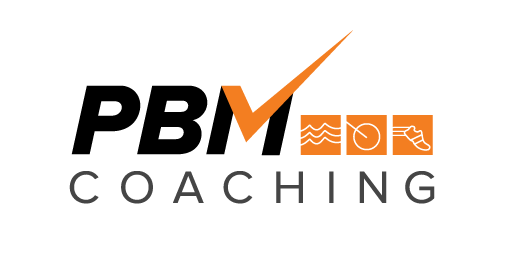Ironman is an event synonymous with commitment and resiliency. While the event and the training required for it certainly require a high degree of dedication and perseverance, the exact demands are often misunderstood. At PBM Coaching we are up front with our athletes about what is and, equally important, what is not required to properly prepare for Ironman. We want athletes to know about how much they’ll train, what that training will look like, and, most importantly, how it will fit in alongside their family and career commitments.
Let there be no confusion: There are no shortcuts in training properly for an Ironman. Athletes will complete long rides in the 100 mile ballpark, long runs over two hours and taxing swim sets. That does not mean, however, that to be ready on race day that it requires athletes to sacrifice their families or jobs. Coaches and their athletes must work together and devise a plan that incorporates both proven training principles and a realistic evaluation of the time available to institute those principles. Failing to do one or both of those things will lead to suboptimal performance on and off the course.
At PBM Coaching we place a high value on quality work over sheer volume. Central to our approach is that the right work is executed under the proper conditions at the correct time in the athlete’s schedule. No two athletes require exactly the same workload on the same schedule. Factors like training load, accumulated training stress, adaptations to prior training, family schedule, work commitments, and general stress level all have a role in determining what sessions an athlete will complete and when they will be completed. Regular oversight and consistent communication are critical to ensuring that all factors are accounted for when prescribing a schedule. Simply setting a number of hours per week that an athlete must complete to arrive at the start line well prepared would be impractical and irresponsible on the part of a coach. Simply put, there is no magic number of training hours required. Rather than a table describing the duration an athlete ought to complete each week, we like to advise athletes by speaking about the general types of training they’ll expect to see as they prepare for Ironman.
Consistency is an important term in triathlon training and one that is sometimes lost in peoples’ obsession with the long ride, long run, and total number of training hours per week. Those components are important, of course, but they don not alone constitute a plan. What’s more important than the exact numbers produced in those relatively few number of sessions is the regularity with which athletes are swimming, running, and riding. We want our athletes on a bike, in running shoes, and in the water often. Not every session needs to produce massive numbers. In fact, only select sessions should. Targeted, quality work is essential and when it happens on a regular basis the results are impressive.
Ironman is a demanding but manageable endeavor. It requires consistency and prioritization, but not necessarily at the expense of family or career. The recipe for success does call for the ingredients of the basic long rides, runs, and swims. Those components alone, though, are not enough to successfully prepare for or execute an Ironman. An athlete can nail those key sessions, but they must be surrounded by frequent, quality work for the benefits to be fully realized.
Contact Kyle at kyle@pbmcoaching.com for more information about Ironman and how it can fit into your life.

